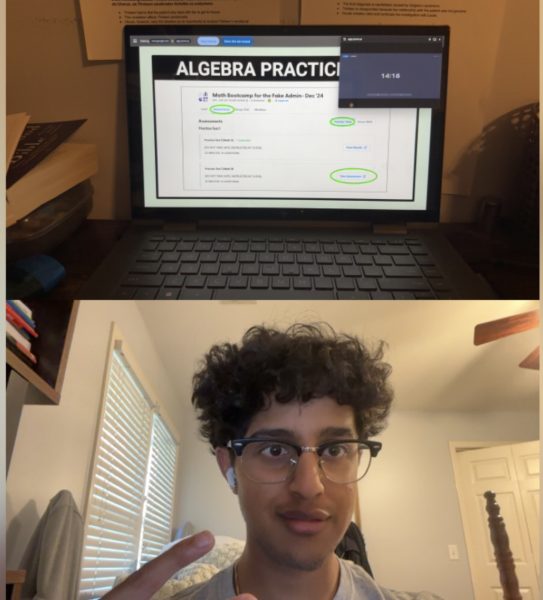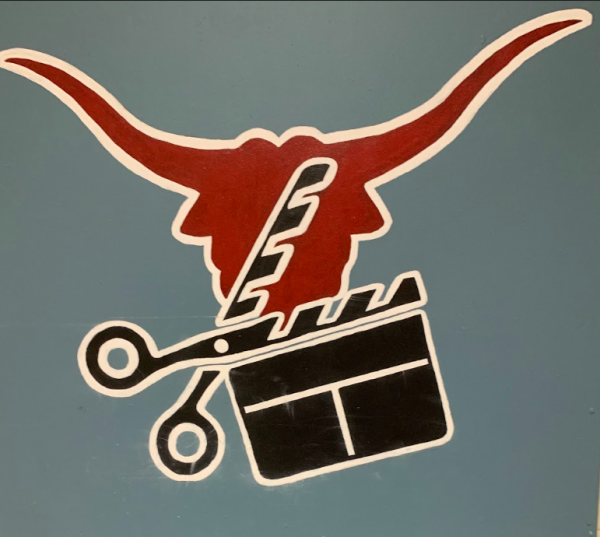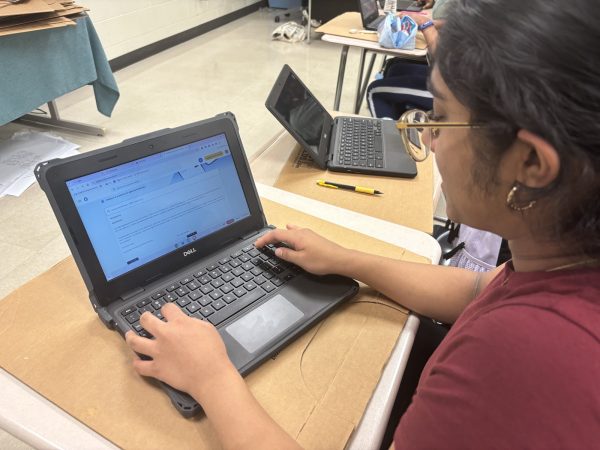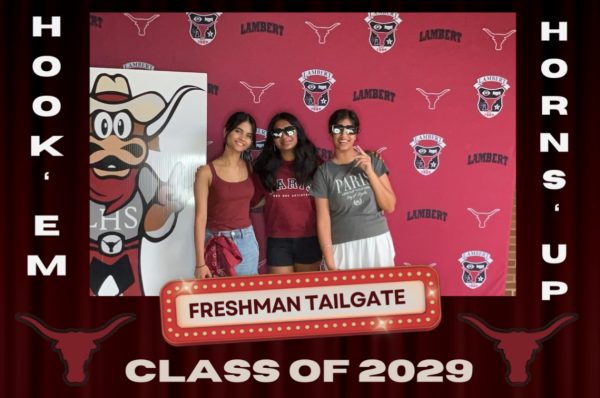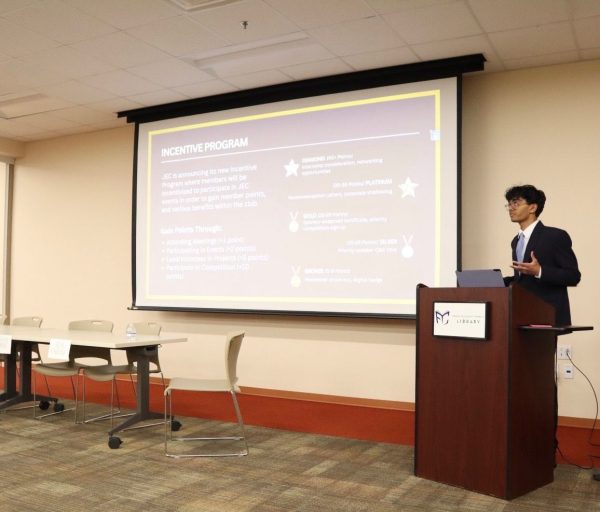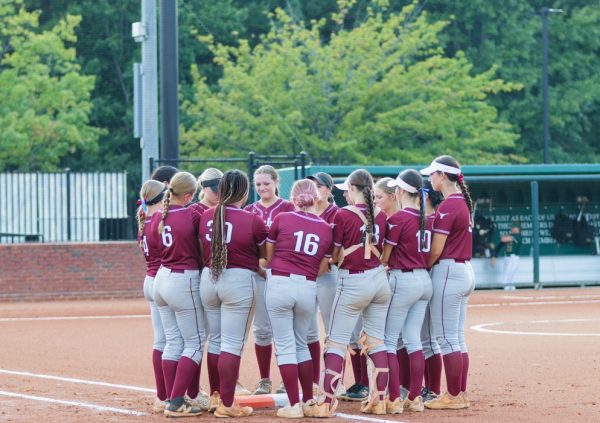School Calendar: To Change Or Not To Change
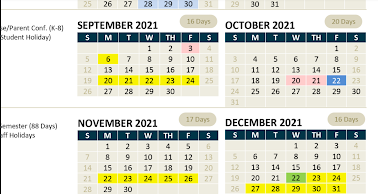
Image by Forsyth County Schools, Published on February 16, 2021, Some rights reserved, https://tinyurl.com/6u9jm83t
There are approximately 180 days of school. The other days consist of weekends and staff and student holidays.
The most anticipated holiday in the fall semester is winter break as it is at the end of the semester; the most stressful time of the year.
This break encompasses the most celebrated holiday in the United States: Christmas.
I wondered if this was a mere coincidence or if it was done on purpose. After this pondering, I decided to go on a mission to hear how people felt about the inclusion of religion in school calendars, and find out what factors contribute to the school calendar.
I had the chance to interview Junior Nadia Ismail on this topic.
She said that she does not know for sure, but considered that the school calendar was somewhat influenced by religion; I was yet to get an answer.
As the interview continued in a saddened accepting tone, she told me that one year she was unable to celebrate Eid* because she had a math test.
This story saddened me and I knew I could only hear and never truly understand what Nadia felt.
“Without holiday breaks I am not able to fully indulge in the spirit of Eid or Ramadan,”
Nadia expressed disappointedly. “I guess in that way it does suppress my culture.”
However, she did say that she was accustomed to not being able to have a break because it is all she had ever known.
“Ultimately I really don’t mind, ” Nadia expressed.
Together we talked about possible petitions because she felt as though religion would ideally be involved in the school calendar to accommodate students of all religions.
“I think that they should do something on more of a personal sense because it is hard with planning,” Nadia finished.
Even though I got an insightful anecdote, I still needed to know how the county’s calendar was created. In trying to find an answer, I had the opportunity to interview the Deputy Superintendent of Forsyth County, Mr. Mitch Young.
In the interview, I learned about how school calendars are made and how they cycle through many stages of feedback from parents and principals. There are many meetings regarding the calendar and drafts are posted on the Forsyth County website for public feedback.
Later on, I then asked the big question:“ Are any religious holidays taken into account when making the calendar?”
“No,” Mr.Young surely replied.
He then cleared up the Winter break/Christmas crossover.
“That traditionally is a week that most families across the board take off,” Mr.Young said. “It is that perfect point in mid-semester that breaks up the school year…that would be the closest thing that you would tie to a religious holiday, but it is because of tradition in America and not that we are making a statement.”
Though the calendar is based solely on tradition, I believe that this tradition came from how Christianity is and has been the most popular religion in the United States; tradition has roots.
Deputy Superintendent Young also said that if some were added and others were not, it would look like Forsyth favors one religion over the other and make some people feel ignored.
Ultimately, I learned that the driving force behind the calendar’s scheduled holidays is to have the school year end before Memorial Day, and have a winter break that acts as an even breaking point in the school year.
He went on to say that as a kid, he had break off for religious holidays up in the north and when he moved down south he found this separation of church and state a bit odd. However, he adjusted to this school’s system and likes it.
“People are free…we live in a democratic society,” Mr.Young explained. “If you had an active community who wanted to take it[adding religious holidays to the calendar] forward to the board, they could.”
Though he also described how adding religion to this secular school calendar could be misconstrued and be seen as an establishment of religion which is unconstitutional. The Deputy Superintendent also said that people should take excused absences to celebrate religious holidays. Furthermore, teachers should be understanding when it comes to religious considerations in school.
From this interview I was able to see two opinions; some people want the calendar to include religious holidays, while others are content with the way the school calendar is.
I wrote this article to give insight on the issue of the school calendar and religion being a conflict. I hope from reading this article you are able to form your own opinion on the school calendar.
If you are someone who wants religion to be added to the calendar, I encourage you to gather your peers and the community’s opinions, go to board meetings and start petitions because those who help create the calendar are open to feedback.
Eid*
Eid is an Islamic holiday that marks the end of Ramadan. (Ramadan: Holy month in which Muslims fast to practice self-restraint which in turn shows their gratitude to Allah. Self-restraint is one of the Five pillars of faith, which are the core beliefs and basic norms in the religion of Islam; essentially the foundation of Islam.) During Eid, Muslims participate in spiritual reflection, prayer and have a huge feast.
Your donation will help support The Lambert Post, Lambert High Schools student-run newspaper! Your contribution will allow us to purchase equipment and cover website hosting costs.




